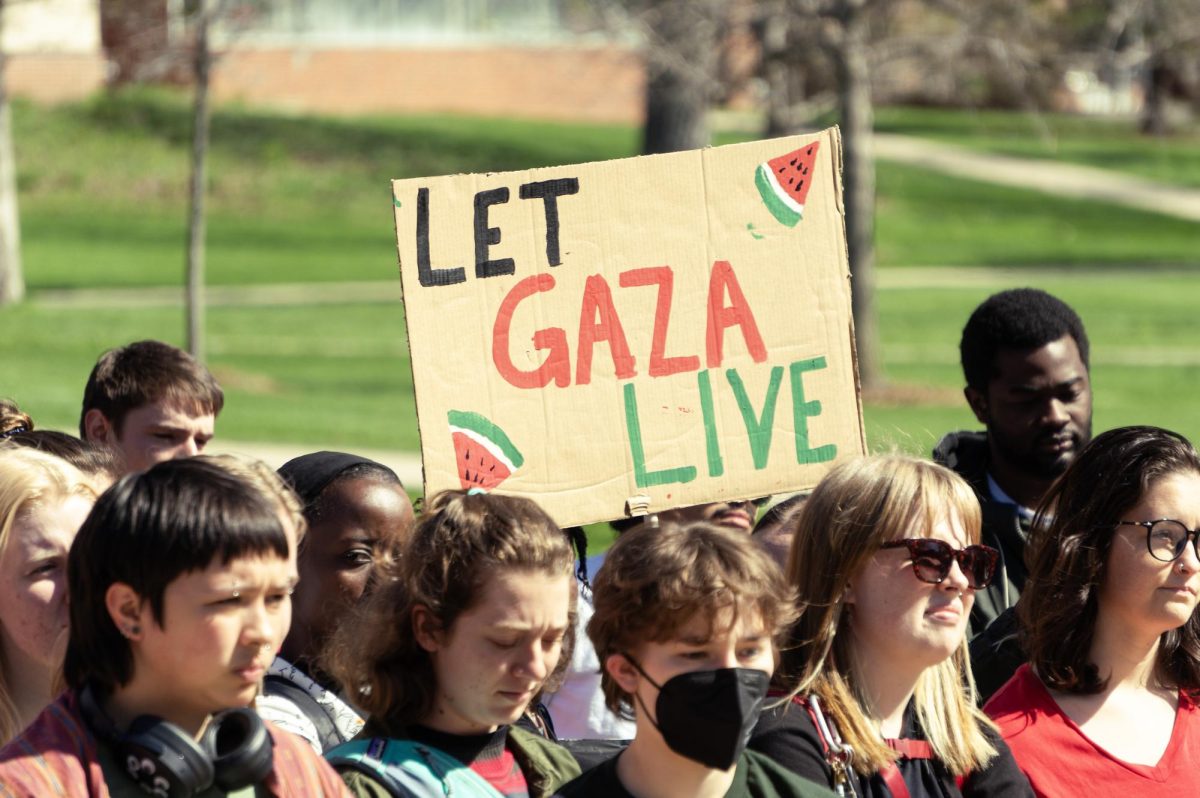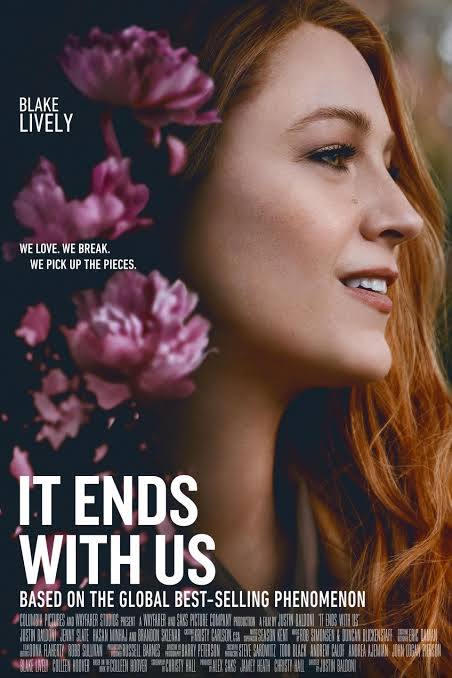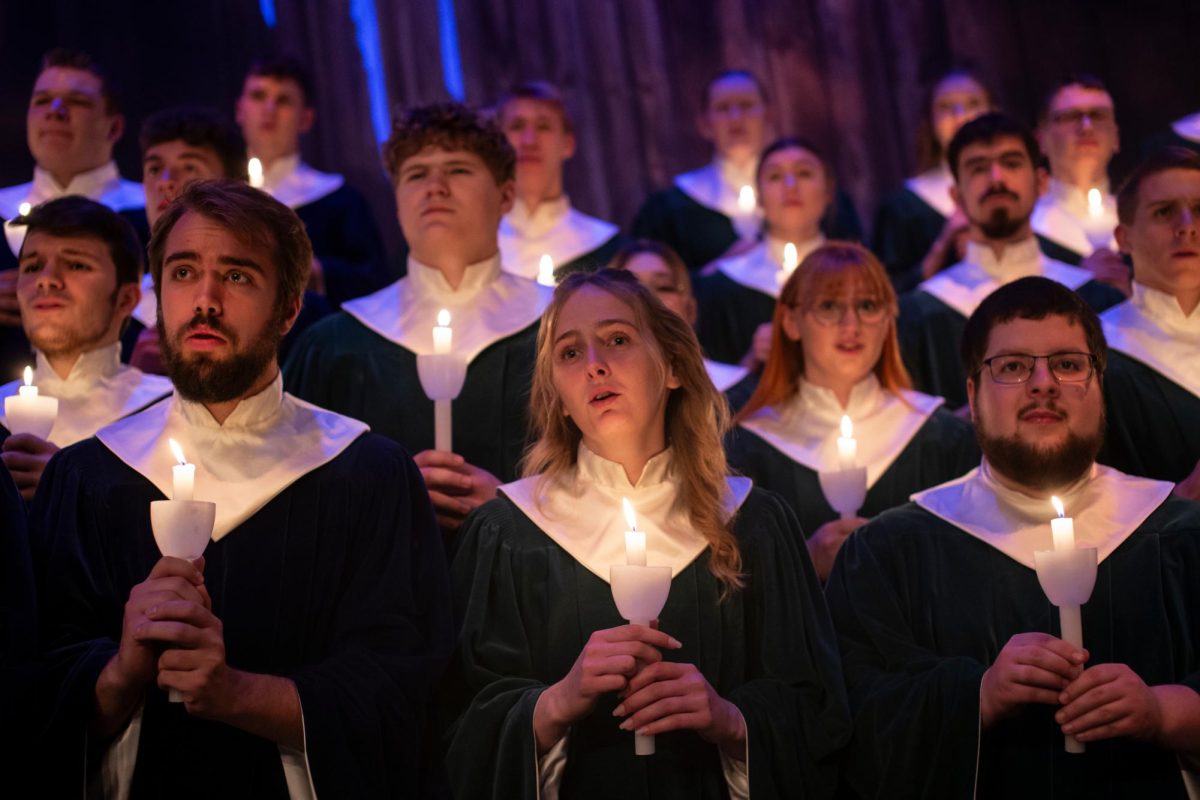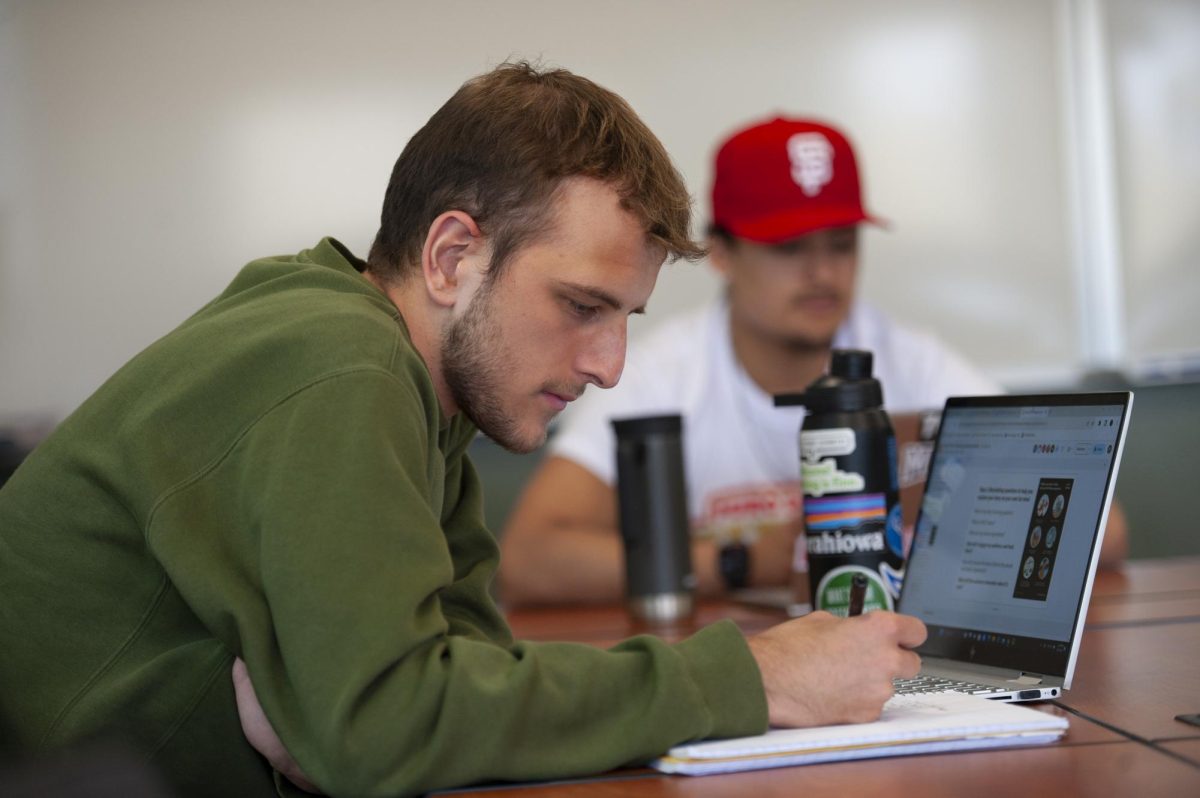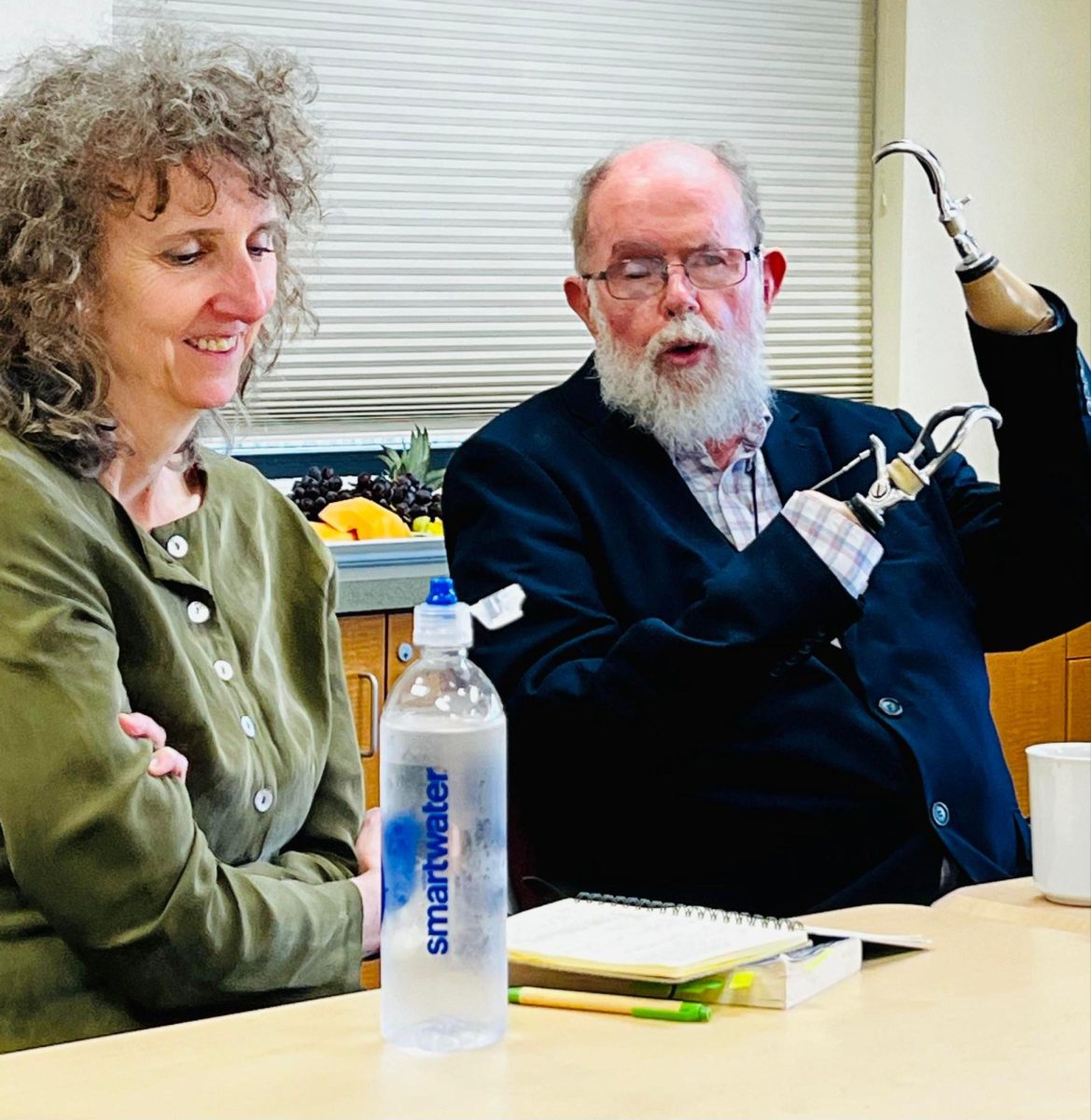It’s funny: one of the first things I learned about journalistic writing was the importance of being impartial. To figure out how to write a story with my own journalistic writerly voice, while not allowing my personal opinion to creep into the story. And for a long time, I thought that I was doing pretty well: letting my quotes speak for themselves, telling stories, and not letting my own thoughts about how much I loved the subject of my piece cloud the story. But then we got to the last couple weeks of the semester, and I wasn’t sure how to do that.
Story pitches about Palestine began popping up, and I felt strongly that I wanted to write about Luther’s response to what was happening in Palestine, but I did not know how to maintain my neutrality while doing so. It feels incredibly clear to me that there is an obvious right and wrong, that Israel, backed by historical and military power, is actively committing genocide against the Palestinian people. I’ve heard people try to defend both sides, or place themselves staunchly in the middle, and perhaps some of this is coming from a place of not wanting to appear anti-Semetic in any way, but fighting for the liberation of Palestinian people must be separated from the issue of religion. Protesting against actions of the state of Israel cannot and should not be equated with anti-semitism, because Israel’s religious ideals are not the root of this problem. Protestors are instead condemning the genocidal actions of one powerful group of people against another less powerful group in blatant violation of fundamental human rights.
Yes, people on both sides of this conflict are suffering, but which side has lost more than 35,000 people? Which side has the support of United States taxpayer dollars? Which side has targeted journalists covering the real atrocities of war? Which side has intentionally bombed every university in Gaza? This is not a just a conflict, this is a genocide. And it feels wrong to force myself to be impartial when writing about what is happening in Palestine.
I have felt an acute sense of helplessness at the prospect of being in Decorah, and watching my friends protest, set up their encampments, and call for university divestment. They have been unwavering in their support, willing to be arrested, and peacefully standing for the things they believe in. Yes, I can try to spread awareness, and donate to mutual aid funds, and that is ultimately helpful, but it doesn’t feel like enough. These protests, this call to end violence, both in Palestine and around the world, feel significant.
At Luther, it felt quiet. After the initial wave of attention in October, interest seemed to fizzle. Some people were reposting graphics on their stories, or talking a little about what is happening, but by and large, I didn’t hear people talking about it on campus, or in class. As encampments were established at other large college campuses, people here weren’t even talking about it. They continued to exist within our bubble in Decorah, going to class, writing papers, studying for exams, all while children were being murdered. And yes, while I am happy that we don’t have to call for our institution to divest from Israel, it feels as though we should be doing something more.
The peaceful march that happened last week was a breath of fresh air, and a sharp change from the almost crushing silence that had fallen over campus. It was inspiring to see people gather together in solidarity with a cause that felt important to all of us, and to hear the impassioned-yet-incredibly-articulate words of the speakers. It was inspiring to see students, professors, and staff alike show up to make our voices heard in the best way we knew how. We stood and listened to speeches, chanted and marched circles around campus, and eventually gathered on Library Lawn, in a big circle.
I left that march feeling something that could almost be described as hopeful. Maybe the lack of noise about Palestine on campus can be attributed to a collective sense of not knowing. Not knowing what to do, how to help, or how to be heard. Through this, and the cords that people are making to wear at graduation, people are creating change in the best way they know how. Even if it feels like our hands are tied, it helps to know that people really do care.
It is worth saying that for me, right now, it feels impossible to be an unbiased source. People are being killed with weapons being sold directly to Israel from the United States. Taxpayer dollars are funding this genocide. People are dying because of the complacency of the United States government. It feels wrong to sit back and let that happen, or to try and continue to be unbiased when talking about it. I couldn’t write it in my other article, but I can write it here: stay mad. Stay loud. Write to your federal and state legislators. Call your federal and state legislators. Wear that cord at graduation. Go to protests. And if you feel as though you cannot “pick a side,” or that you can continue to be “impartial” about what is happening in Gaza, then you’re not paying attention to what is actually happening.

